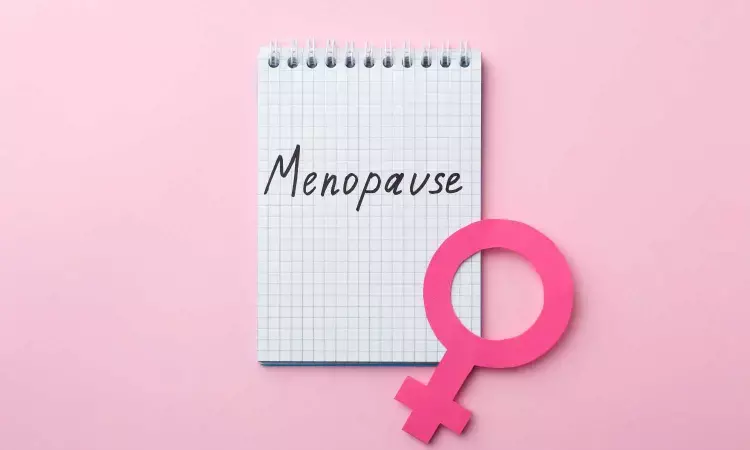- Home
- Medical news & Guidelines
- Anesthesiology
- Cardiology and CTVS
- Critical Care
- Dentistry
- Dermatology
- Diabetes and Endocrinology
- ENT
- Gastroenterology
- Medicine
- Nephrology
- Neurology
- Obstretics-Gynaecology
- Oncology
- Ophthalmology
- Orthopaedics
- Pediatrics-Neonatology
- Psychiatry
- Pulmonology
- Radiology
- Surgery
- Urology
- Laboratory Medicine
- Diet
- Nursing
- Paramedical
- Physiotherapy
- Health news
- Fact Check
- Bone Health Fact Check
- Brain Health Fact Check
- Cancer Related Fact Check
- Child Care Fact Check
- Dental and oral health fact check
- Diabetes and metabolic health fact check
- Diet and Nutrition Fact Check
- Eye and ENT Care Fact Check
- Fitness fact check
- Gut health fact check
- Heart health fact check
- Kidney health fact check
- Medical education fact check
- Men's health fact check
- Respiratory fact check
- Skin and hair care fact check
- Vaccine and Immunization fact check
- Women's health fact check
- AYUSH
- State News
- Andaman and Nicobar Islands
- Andhra Pradesh
- Arunachal Pradesh
- Assam
- Bihar
- Chandigarh
- Chattisgarh
- Dadra and Nagar Haveli
- Daman and Diu
- Delhi
- Goa
- Gujarat
- Haryana
- Himachal Pradesh
- Jammu & Kashmir
- Jharkhand
- Karnataka
- Kerala
- Ladakh
- Lakshadweep
- Madhya Pradesh
- Maharashtra
- Manipur
- Meghalaya
- Mizoram
- Nagaland
- Odisha
- Puducherry
- Punjab
- Rajasthan
- Sikkim
- Tamil Nadu
- Telangana
- Tripura
- Uttar Pradesh
- Uttrakhand
- West Bengal
- Medical Education
- Industry
In menopause, sleep is vitally important for women's long-term heart health, study finds

Menopause
During the menopause transition, only 1 in 5 women have optimal scores using the American Heart Association's health-assessment tool, known as Life’s Essential 8 (LE8). Among the tool’s eight components, four of them-blood glucose, blood pressure, sleep quality and nicotine use-are key in driving future cardiovascular risks, with sleep being particularly crucial for long-term cardiovascular health.
The findings-published today in Menopause-were made by researchers at the University of Pittsburgh, Albert Einstein College of Medicine and Baylor University.
“Previously we’ve shown that the menopause transition is a time of accelerating cardiovascular risk,” said senior author Samar R. El Khoudary, Ph.D., M.P.H., professor of epidemiology at Pitt’s School of Public Health. “This study underscores that it’s also an opportunity for women to take the reins on their heart health.”
The team analyzed health data collected from about 3,000 women who participated in the Study of Women’s Health Across the Nation (SWAN), an ongoing, longitudinal, multi-site, multi-ethnic study of midlife women that began in 1996. The researchers compared the women’s LE8 scores at baseline, around age 46, to their evolving health trajectories over time, from subclinical cardiovascular disease measures, such as increased carotid-artery thickness, to cardiovascular events, including heart attacks and strokes, to mortality of all causes. The team also examined impacts of each of the individual LE8 components: nutrition, physical activity, smoking abstinence, sleep, body mass index, blood lipids, blood sugar and blood pressure.
The analysis showed that four LE8 components-blood glucose, blood pressure, sleep quality and nicotine use-were the most important factors driving the study participants’ future cardiovascular risks.
Above all, sleep emerged as a potential predictor for long-term effects of cardiovascular disease events and all-cause mortality, though it was not linked to the shorter-term effects of carotid-artery thickening. The team found that at midlife, meeting the bar for healthy sleep, defined in Life’s Essential 8 as seven to nine hours on average for most adults, may contribute to women’s heart health and longevity, a hypothesis that should be tested in a future clinical trial, said Ziyuan Wang, Ph.D. candidate at Pitt Public Health and first author.
Low total LE8 scores correlated with increased cardiovascular risk, as expected-however, only 21% of the midlife women studied had an ideal LE8 score.
“With heart disease being the leading cause of death in women, these findings point to the need for lifestyle and medical interventions to improve heart health during and after menopause among midlife women,” said El Khoudary.
Reference:
Wang, Ziyuan MS1; Barinas-Mitchell, Emma PhD1; Brooks, Maria M. PhD1; Derby, Carol A. PhD2; Magnani, Jared W. MD, MSc1,3; Thurston, Rebecca C. PhD1; Ylitalo, Kelly R. PhD4; Bertolet, Marnie PhD1; El Khoudary, Samar R. PhD, MPH1. Prospective associations of American Heart Association Life’s Essential 8 with subclinical measures of vascular health, cardiovascular disease events, and all-cause mortality in women traversing menopause: The Study of Women’s Health Across the Nation study. Menopause ():10.1097/GME.0000000000002549, July 8, 2025. | DOI: 10.1097/GME.0000000000002549.
Dr Kamal Kant Kohli-MBBS, DTCD- a chest specialist with more than 30 years of practice and a flair for writing clinical articles, Dr Kamal Kant Kohli joined Medical Dialogues as a Chief Editor of Medical News. Besides writing articles, as an editor, he proofreads and verifies all the medical content published on Medical Dialogues including those coming from journals, studies,medical conferences,guidelines etc. Email: drkohli@medicaldialogues.in. Contact no. 011-43720751


